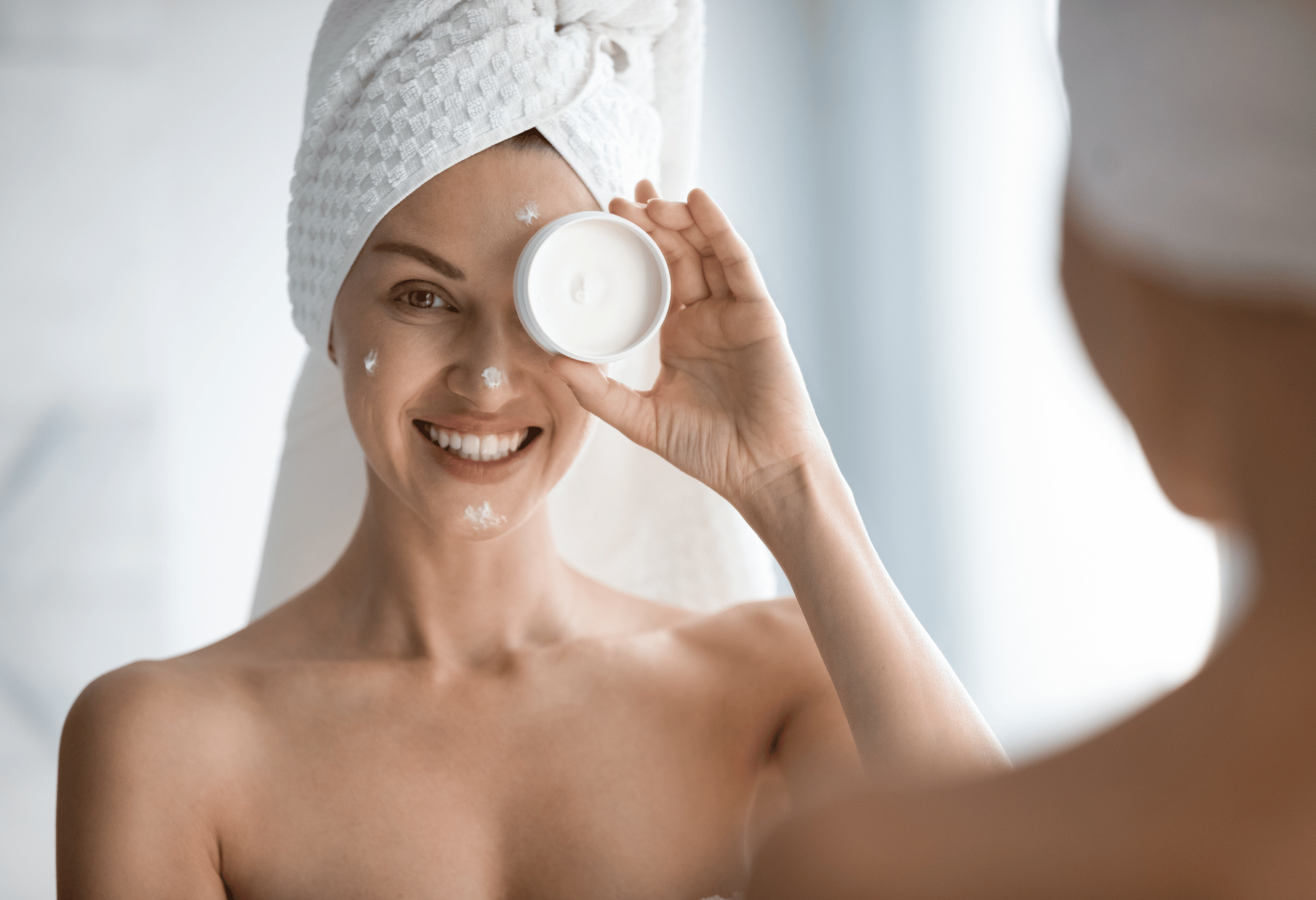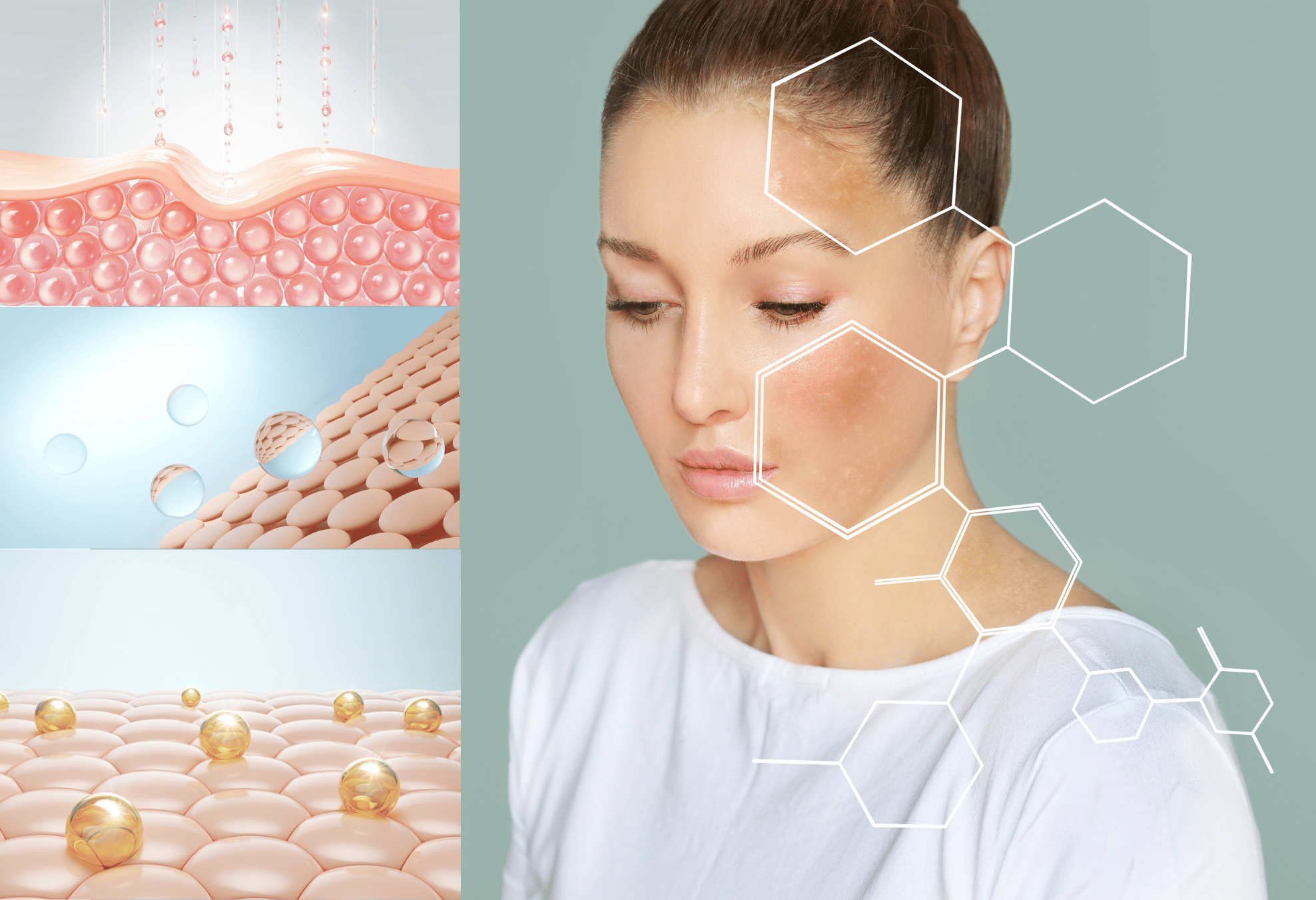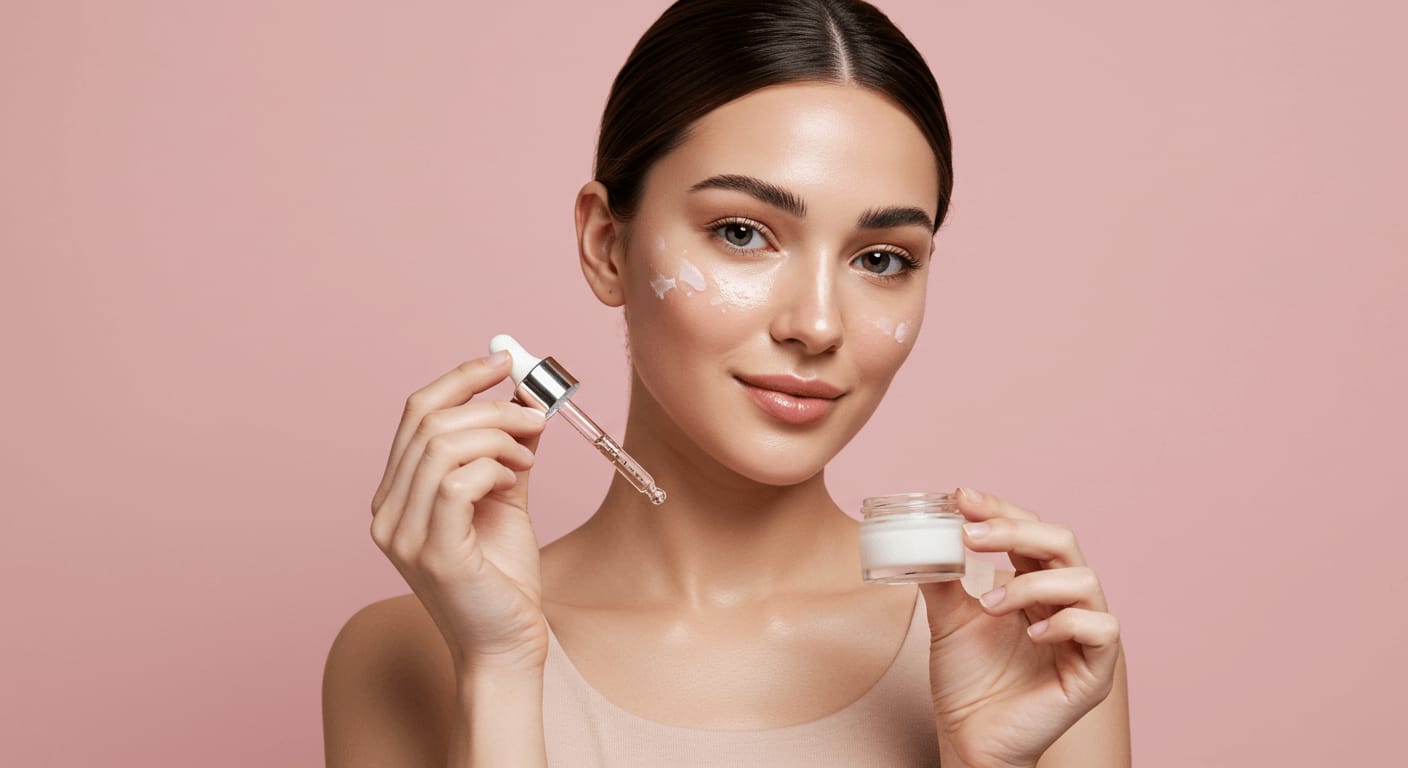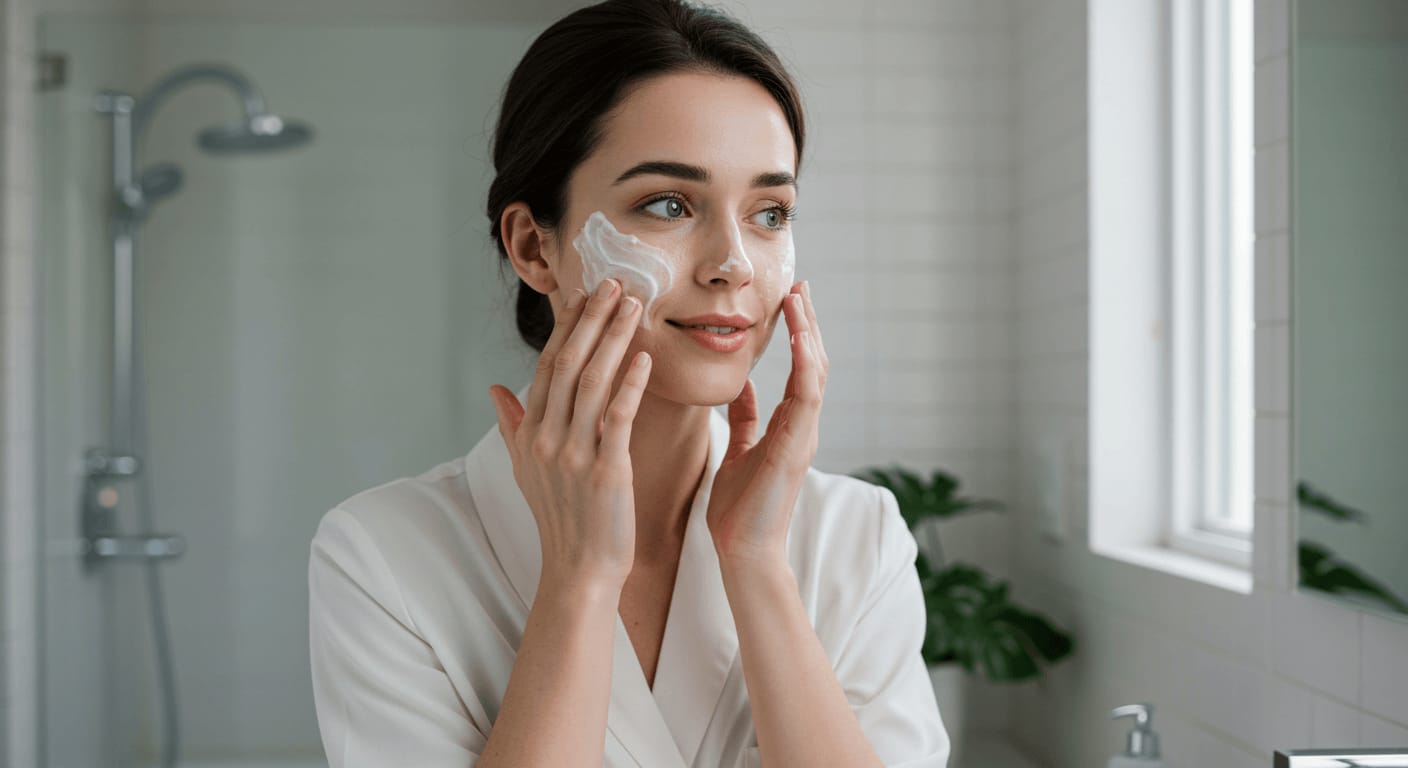There’s no magic wand for perfect skin, but you can significantly improve your complexion while you sleep. By incorporating potent ingredients into your nighttime skincare routine, you empower your overnight skin to repair and rejuvenate effectively. From retinol that boosts cell turnover to the hydrating benefits of hyaluronic acid, these elements work while you rest. In this guide, you’ll discover the top ingredients that can help transform your skin overnight, addressing issues like dryness, fine lines, and uneven texture for a brighter, healthier appearance by morning.
Table of Contents
Key Takeaways: Top Ingredients for Overnight Skin Repair
- Retinol: This powerful vitamin A derivative promotes cell turnover and helps reduce fine lines and wrinkles for a more youthful appearance.
- Hyaluronic Acid: A potent humectant that attracts moisture, hyaluronic acid hydrates the skin and plumps it up, making it look fresh and revitalized.
- Peptides: These amino acids stimulate collagen production, enhancing skin elasticity and supporting its structural integrity.
- Niacinamide: Known for its anti-inflammatory properties, niacinamide helps to even skin tone, minimize pores, and improve overall texture.
- Antioxidants: Ingredients like vitamin C and E protect the skin from free radical damage, promoting repair and giving the skin a healthy glow.

Types of Ingredients for Overnight Skin Repair
To truly transform your skin overnight, it’s necessary to understand the different types of ingredients that can aid in this restoration process. Each ingredient serves a specific purpose, ensuring that your skin receives optimal care while you sleep. By incorporating these into your nighttime routine, you pave the way for a healthier, more radiant complexion. Here are some of the key types of ingredients to consider:
| Ingredient Type | Description |
|---|---|
| Hydrating Agents | Help to replenish moisture and maintain hydration levels. |
| Anti-Aging Compounds | Reduce the appearance of fine lines and wrinkles. |
| Soothing Botanicals | Calm irritated skin and reduce inflammation. |
| Exfoliants | Promote cell turnover for a brighter complexion. |
| Brightening Agents | Help even out skin tone and reduce dark spots. |
Hydrating Agents
Some of the best hydrating agents include hyaluronic acid, glycerin, and aloe vera. These ingredients work together to pull moisture into the skin and lock it in, ensuring that you wake up to a plump and dewy complexion. Hydrating agents create a barrier that prevents water loss, which is especially important during the night when your skin undergoes its repair processes. When your skin is properly hydrated, it can better absorb other beneficial ingredients you apply. For insights on highly recommended hydrating products, check out 5 Best Hydrating Serums That Revitalize Your Skin.
Additionally, using products packed with hydrating agents can enhance the overall texture of your skin. By preventing dryness and flakiness, these ingredients help reduce the appearance of pores and fine lines, giving you a smoother look. Your nighttime skincare routine should effectively incorporate these agents to maximize skin restoration, leaving you with a refreshed appearance by morning.
Anti-Aging Compounds
Hydrating compounds can significantly benefit your skin, but integrating anti-aging compounds, such as retinol and peptides, is equally necessary to target signs of aging. These ingredients promote collagen production, which is vital for maintaining skin elasticity and firmness. As you apply these products at night, they work tirelessly to minimize the visible effects of aging, including fine lines and sagging skin. Retinol, for instance, encourages cellular turnover, resulting in a smoother and more youthful-looking complexion. For a guide on effective anti-aging products, explore 5 Best Anti-Aging Creams That Actually Work.
To maximize the benefits of anti-aging compounds, consistency is key. Incorporate these ingredients regularly into your skincare regime to see significant improvements over time. The combination of exfoliation and hydration allows your skin to rejuvenate, making your nightly routine not only restorative but also preventative against future signs of aging.
Soothing Botanicals
For those with sensitive or irritated skin, soothing botanicals can be a lifesaver. Ingredients like chamomile and green tea extract are known for their calming properties, reducing redness and inflammation effectively. Incorporating these into your overnight routine will promote a peaceful slumber while allowing your skin to recover from daily stresses. You might also find that these soothing botanicals help prevent breakouts, providing an excellent option for sensitive skin types. To discover skin-soothing essentials, consider 5 Best Soothing Skincare Products for Sensitive Skin.
This blend of natural extracts can also provide antioxidants that protect your skin from environmental damage, necessarily prepping it for the next day. When you invest in your skin with these infusions, you’re not just repairing—you’re also fortifying and nurturing it for lasting health.


Tips for Maximizing Overnight Skin Repair
While you sleep, your skin enters a natural repair mode, making it the perfect time to enhance this process. To maximize your overnight skin repair, consider the following tips:
- Prioritize hydration by using a quality moisturizer.
- Incorporate products rich in antioxidants to fight free radicals.
- Utilize a gentle exfoliator before bed to remove dead skin cells.
- Layer your skincare products based on consistency for optimal absorption.
- Maintain a consistent skincare routine for best results.
Any adjustments you make to your nighttime regimen can significantly enhance your skin’s ability to recover and rejuvenate, leading to a healthier and more radiant complexion.
Layering Techniques
To effectively layer your skincare products, start with the lightest formulations and work your way to the heaviest. This ensures that each product penetrates your skin properly and provides the maximum benefits. Begin with a gentle cleanser, followed by a soothing toner, and then layer on serums filled with active ingredients. Finally, seal in hydration with a nourishing moisturizer. This method not only locks in moisture but also boosts the efficacy of your active ingredients. For a complete guide, check out 5 Best Skincare Layering Products for Maximum Benefits.
In the matter of layering techniques, always allow each layer to absorb before applying the next one. This allows your skin to fully benefit from each product without feeling greasy or weighed down. Pay attention to the order of application and choose products based on their desired effects, ensuring the heavier components are saved for last to seal in moisture and provide that much-needed barrier against environmental stressors.
Choosing the Right Time
Little adjustments to your nighttime routine can lead to significant improvements in your skin’s repair process. Aim to apply your products at least 30 minutes before you go to bed, allowing time for your skin to absorb the beneficial ingredients. Your body functions optimally at night, and timing can enhance absorption, making your skincare routine more effective. To learn more about effective timing, explore 5 Nighttime Skincare Routines for Glowing Skin.
Plus, establishing a regular nighttime skincare ritual not only benefits your skin but also signals your body to wind down. The key to effective overnight repair lies in timing; late-night applications can disrupt your beauty rest and reduce the efficacy of the ingredients, as your skin can become too active in the hours following application. Ensure you remain consistent, and never underestimate the power of quality sleep for achieving that dewy, refreshed look!
Step-by-Step Guide to Overnight Skin Care Routine
Unlike your daytime skincare routine, an overnight skin care ritual focuses on repair and rejuvenation, taking advantage of the body’s natural healing processes while you sleep. To maximize the benefits, it’s crucial to follow a structured approach that includes cleansing, applying active ingredients, and utilizing a nourishing night cream. Below is a simple guide to make the most out of your overnight skincare:
| Step | Description |
|---|---|
| Cleansing | Remove impurities and prepare your skin for the following treatments. |
| Application of Ingredients | Introduce active ingredients that cater to your skin concerns. |
| Night Cream Use | Lock in moisture and nutrients to hydrate your skin overnight. |
Cleansing
To achieve glowing skin, start your routine with cleansing. You should opt for a gentle cleanser suitable for your skin type to wash away dirt, oil, and makeup that accumulate throughout the day. This step not only prepares your skin for the subsequent products but also helps in preventing clogged pores and breakouts. It’s advisable to cleanse your face thoroughly for at least a minute to ensure you’re removing all impurities effectively. For more tips, explore 5 Best Cleansers for Perfectly Clear Skin.
To enhance your cleansing experience, you may consider double cleansing, especially if you wear makeup or sunscreen daily. The first cleanse can be an oil-based cleanser to break down makeup and excess oil, followed by a water-based cleanser to remove any remaining residue. This two-step approach significantly boosts your skin’s clarity and allows for better absorption of the beneficial ingredients you will apply later.
Application of Ingredients
There’s a vast array of active ingredients that can work wonders for your skin while you sleep. After cleansing, you can start applying serums that contain antioxidants, peptides, or hyaluronic acid. These ingredients not only help in addressing specific concerns, like pigmentation or fine lines, but they also promote skin regeneration, ensuring you wake up with a fresh complexion. For guidance on effective serums, check out 5 Best Serums to Transform Your Skin Overnight.
There’s a joy in layering different active ingredients, but be cautious about their compatibility. Using ingredients like retinol together with vitamin C can be potent, but they may also cause irritation if your skin isn’t accustomed to them. Therefore, introducing one new product at a time can help you gauge how your skin responds. This fine-tuning is vital for achieving the best possible results.
For instance, you might choose a retinol serum for its anti-aging properties, paired with a hydrating serum that contains hyaluronic acid to maintain moisture levels. This combination not only enhances your overnight repair process but also provides a balance between treating specific skin issues and keeping your skin hydrated.
Night Cream Use
With all the nourishing ingredients layered onto your skin, the final step is to seal it in with a rich night cream. This cream serves as a barrier that locks in moisture and active ingredients, ensuring that your skin continues to benefit throughout the night. Look for creams that are rich in emollients and occlusives to provide ample hydration while you rest. For a list of top-rated options, explore 5 Best Night Creams for Deep Hydration.
Application of a night cream should be generous yet gentle; a pea-sized amount spread evenly on your face and neck is usually sufficient. Pay attention to areas that tend to dry out more quickly to give them extra moisture. Additionally, you might want to choose a cream infused with soothing ingredients like chamomile or lavender to help you relax, turning your skincare routine into a calming ritual.
Factors to Consider When Choosing Ingredients
Not all skincare ingredients are created equal, and choosing the right ones for your needs requires thoughtful consideration. When dicking out components for your overnight skincare routine, consider these factors:
- Skin Type: Different skin types benefit from specific ingredients.
- Seasonal Changes: Your skin’s needs can vary with the weather.
- Efficacy: Look for scientifically-backed ingredients that demonstrate results.
- Compatibility: Ensure your selected ingredients work well together.
- Sensitivity: Be mindful of potential reactions specific to your skin.
Any ingredient you choose should align with your personal skincare goals and the unique characteristics of your skin.
Skin Type
Even though everyone has unique skin, determining your skin type is imperative for selecting the right overnight skincare ingredients. If you have oily skin, lightweight, non-comedogenic products with ingredients like salicylic acid or niacinamide can help reduce excess oil production while refining your texture. Conversely, those with dry skin may benefit from rich creams and oils infused with hyaluronic acid or ceramides that provide deep hydration and restore moisture barriers. It’s vital to assess your skin’s needs regularly, as they may evolve over time. For a comprehensive guide, check out 5 Best Products for Every Skin Type.
Your experience with product performance can also vary based on skin type. For combination skin, selecting versatile ingredients that cater to both dry and oily areas will be beneficial. Tailoring your nighttime routine to your specific skin type can lead to improved skin health and overall appearance.
Allergies and Sensitivities
Type examinations for allergies and sensitivities in skincare ingredients go a long way toward ensuring your safety and comfort. Ingredients like fragrances, certain imperative oils, and preservatives can aggravate your skin if you have sensitive skin or are prone to allergic reactions. It’s important to read ingredient labels meticulously and opt for products marked as “hypoallergenic” or “dermatologist-tested” to minimize potential irritations. For tips on safer skincare choices, explore 5 Best Hypoallergenic Products for Sensitive Skin.
For instance, if you’re allergic to fragrance, you may notice redness, rashes, or discomfort upon application. Watch out for ingredients like parabens and certain alcohols that can trigger reactions. Consulting a dermatologist to identify your specific allergens is a wise approach to build a skincare regimen that nurtures rather than hinders your skin health. By being informed and cautious, you can ensure your skincare choices lead to positive results.
Pros and Cons of Overnight Skin Repair Ingredients
Many people are drawn to the idea of using overnight skin repair ingredients to rejuvenate their skin while they sleep. However, it is necessary to weigh the pros and cons to determine the best options for your personal skin care routine. Understanding how these ingredients work can help you make informed decisions tailored to your unique skin needs.
| Pros | Cons |
|---|---|
| Hydration boost for dry skin | Potential for clogged pores |
| Improvement in skin texture over time | Possible irritation for sensitive skin |
| Convenient application before bedtime | Results can vary from person to person |
| Enhanced absorption of active ingredients during sleep | May require time to adjust to new products |
| Typically formulated for overnight use | Some ingredients may be too potent for daily use |
| Provides antioxidants for skin protection | Fragrances can be irritating for some |
| Can target specific skin concerns | May not work effectively with certain skin types |
| Often contains nourishing oils and vitamins | Can lead to over-dependence on products |
| Promotes a radiant appearance | Time needed for optimum results |
| Easy to integrate into your skincare routine | Some products may be expensive |
Benefits
Clearly, overnight skin repair ingredients provide a variety of benefits that cater to the specific needs of your skin. One of the most considerable advantages is the ability to deliver a powerful dose of hydration while you sleep, which can be especially effective for those with dry or combination skin types. As you enforce a consistent nighttime routine, over time, you can see a significant improvement in your skin texture and overall appearance. For product suggestions, explore 5 Best Hydrating Night Products for Glowing Skin.
Additionally, many overnight products are packed with potent antioxidants and nourishing vitamins that not only aid in repairing skin damage but also help protect against environmental stressors. This multifaceted approach allows you to wake up to revitalized skin, making it easier for you to tackle the day ahead with a radiant glow.
Potential Drawbacks
Drawbacks of using overnight skin repair ingredients should not be overlooked. While many products are designed for overnight use, some formulations may contain potent active ingredients that could lead to unwanted irritation or sensitivity, particularly if you have sensitive skin. It is vital to monitor how your skin reacts when trying new products and adjust accordingly. To navigate these challenges, consider checking out 5 Common Mistakes in Overnight Skincare to Avoid.
Overnight applications may also have effects that deviate from your expectations. Not all ingredients work well with every skin type, meaning that what benefits one person could result in issues for another. You might experience congestion due to heavier formulations, or discover that certain fragrances or preservatives provoke a reaction. For best results, you may want to conduct patch tests before fully committing to a new product.
FAQs About Overnight Skin Repair
All your questions about overnight skin repair are valid, as understanding this process can significantly enhance your skincare routine. You may wonder what ingredients are most effective or how they work overnight to rejuvenate your skin. Incorporating the right elements into your nightly regimen, such as hyaluronic acid, retinol, and antioxidants, can yield remarkable results. To explore more about Anti-Aging Skin Care: Ingredients and Routine, you will benefit from detailed insights and professional advice.
Common Concerns
An effective overnight skin repair routine can sometimes be met with skepticism. You might question whether these products genuinely work or if they merely provide a placebo effect. The truth is, many ingredients work synergistically overnight, promoting cell turnover and hydration to unveil refreshed skin by morning. Ensuring that you apply these products consistently increases their efficacy.
Expert Recommendations
Common recommendations from dermatologists emphasize the importance of quality over quantity when it comes to your overnight skincare products. Opt for serums and creams that specifically target your unique skin concerns, whether it’s dryness, fine lines, or pigmentation. Look for formulations rich in niacinamide, peptides, and retinol, as these ingredients are known for their visible benefits. Additionally, always consider your skin type before selecting your products to avoid irritation and support your overall skin health.
Overnight skin repair is a vital aspect of any effective skincare routine, enabling you to wake up with a beautiful glow. Incorporating products that contain active ingredients can enhance your skin’s natural restoration process while you sleep. Always patch-test new products to prevent adverse reactions and layer them properly, starting with thinnest to thickest formulations. By prioritizing the health of your skin overnight, you set the stage for long-term benefits.
Conclusion
So, as you consider your nighttime skincare routine, incorporating ingredients specifically designed for overnight skin repair can significantly enhance your skin’s health. By understanding the benefits of hyaluronic acid, retinol, antioxidants, peptides, and niacinamide, you can make informed choices that cater to your unique skin needs. Each of these ingredients plays a vital role in hydrating, rejuvenating, and ultimately restoring your complexion while you sleep, ensuring you wake up with a refreshed and radiant appearance.
Investing in skincare products that feature these top-performing ingredients empowers you to take control of your skin’s restoration process. Your nighttime routine is the perfect opportunity to nourish and repair your skin after a long day, paving the way for a brighter tomorrow. With the right combination of these top ingredients, you can cultivate a complexion that not only looks good but feels good as well.
FAQ:
1. What are the best ingredients for overnight skin repair?
The best ingredients include retinol for boosting cell turnover, hyaluronic acid for hydration, peptides for skin repair, and antioxidants like vitamin C to fight free radicals. Choose ingredients based on your skin’s specific needs.
2. How do overnight skin repair products work?
Overnight skin repair products work by supporting your skin’s natural healing process, which is most active during sleep. They provide hydration, repair damage, and boost collagen production to restore skin health.
3. Can I use multiple ingredients for overnight skin repair?
Yes, but it’s important to ensure the ingredients complement each other. For example, avoid mixing retinol with strong acids like AHAs/BHAs to prevent irritation.
4. Are natural ingredients effective for overnight skin repair?
Absolutely! Ingredients like aloe vera, rosehip oil, and green tea extract are gentle yet effective for repairing and soothing the skin overnight.
5. How do I know which ingredients are right for my skin type?
For dry skin, focus on hydrating ingredients like hyaluronic acid. For oily or acne-prone skin, look for non-comedogenic options like niacinamide. Sensitive skin benefits from calming ingredients like chamomile or ceramides.
6. Is it okay to skip my nighttime skincare routine occasionally?
While it’s best to maintain consistency, skipping your routine occasionally won’t cause lasting harm. However, regular neglect can slow progress and lead to dull, dehydrated skin.
7. Can I use overnight repair ingredients during the day?
Some ingredients, like peptides and hyaluronic acid, are safe for daytime use, but others, such as retinol, can increase sun sensitivity. Always check product recommendations and apply sunscreen during the day.
8. How long does it take to see results from overnight skin repair?
Results vary depending on the ingredients and your skin’s condition. Hydration and plumping effects can be immediate, while repair and anti-aging benefits may take weeks to become noticeable.
9. Are there any side effects of using overnight repair ingredients?
Some ingredients, like retinol or strong acids, may cause redness, irritation, or peeling, especially if introduced too quickly. Always patch test and start with lower concentrations.
10. Do I need to use an overnight mask for effective skin repair?
While not essential, overnight masks can enhance your routine by providing extra hydration and nourishment. Use them a few times a week for added benefits.



























0 Comments
Trackbacks/Pingbacks